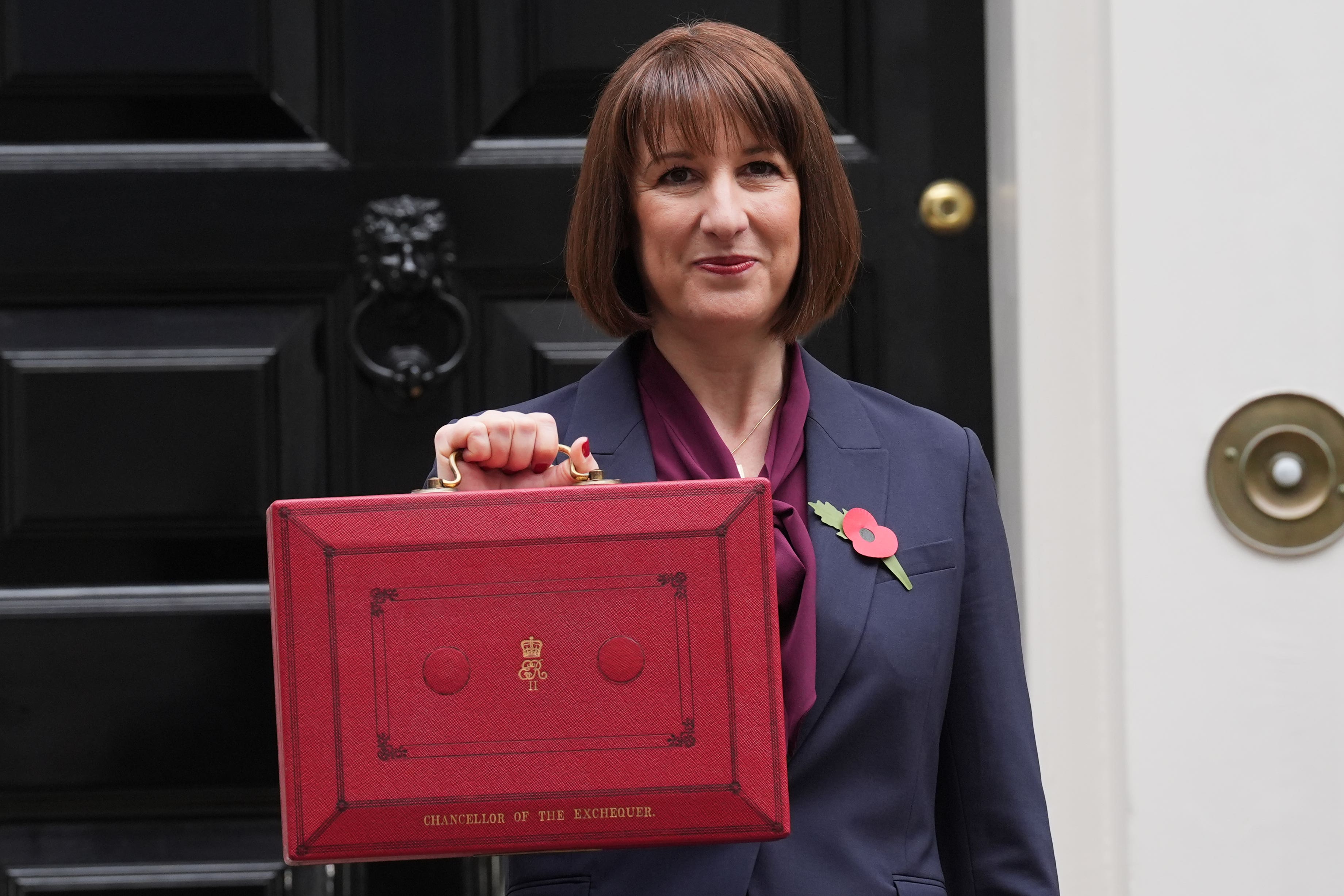A strong performance, chancellor – but you can’t afford another Budget like this
Thanks to some nifty sleights of hand, the chancellor was able to declare that she had not broken any electoral pledges. But will Rachel Reeves’s spending plans revive the government’s fortunes, asks Andrew Grice

Rachel Reeves played a very difficult hand as well as anyone could, in the circumstances.
The title of her first Budget – “Fixing the foundations to deliver change” – was a bit clunky, and even raised the eyebrows of some Labour advisers when they first saw it. “Fixing the foundations to rebuild Britain” would have been better, but someone had clearly insisted on the “change” Labour promised at the election.
To be fair, in a strong performance, the chancellor did offer that change, saving her two goodies until last: billions more for education and the NHS, a throwback to the “schools and hospitals” mantra of the Blair-Brown era.
Reeves staged a partial escape from her self-imposed straitjacket by changing the fiscal rules she had described as “non-negotiable”. She trumpeted an extra £100bn of building projects over five years under her tweaked “investment rule” on debt. The price, to reassure the financial markets, was a tight settlement on day-to-day spending.
The budgets of government departments will rise by 1.5 per cent in real terms in future years after an initial boost – not much above the 1 per cent pencilled in by the Conservatives, which Labour described as extreme austerity. No wonder ministers not responsible for “protected departments” kicked up a fuss. They will be squeezed.
The second rule meant a dramatic £40bn of tax rises, at the upper end of expectations, to ensure day-to-day spending is not funded by borrowing, with £25bn coming from a rise in employers’ national insurance.
The politics of this Budget were harder than the economics. Reeves claimed a “mandate” for her measures and repeatedly referenced Labour’s manifesto. But she rather gave the game away when she also spoke about her “choice”. It was a political one – raising taxes to safeguard and improve public services.

But crucially, this was not the choice Labour offered the voters in July; Labour figures said repeatedly they had no plans for further tax rises on top of the limited £8bn of increases in the manifesto. It’s hard to argue that £40bn of tax increases, taking the tax burden to an historic high, justify Labour’s “no surprises” promise on tax.
Reeves argued Labour had honoured its pledge to “working people” by not raising their taxes, after ministers got in a pickle over the definition of this group in the run-up to the Budget.
True, she did not put up income tax, VAT or national insurance for employees. Nor did she extend Rishi Sunak’s freeze in income tax thresholds and allowances beyond 2027-28 after the Treasury allowed such an expectation to run. Working people would have eventually noticed that.
But Labour is dancing on the head of a pin. Much of the national insurance hike for employers will be passed on to working people through lower wages and fewer jobs. At the very least, the spirit, if not the letter, of the manifesto has been broken.
Some voters, perhaps many, will feel Labour ran on a false prospectus in July. The big question is whether this will matter come the next general election. That, I believe, will depend on whether voters feel better off by then, and whether they judge their public services, notably the NHS, have improved.
It’s a huge gamble. Labour cannot afford politically to have another Budget like this before the next election. The key challenge is to raise the UK’s sluggish growth rate. The Office for Budget Responsibility fiscal watchdog has increased its growth forecast for this year and next but ominously, has scaled down its predictions for the following three years.
Some Labour MPs fear privately that, without stronger growth, Reeves will have to raise taxes again to avoid what would certainly feel like austerity. She would struggle to win public support for such a move. The next election is already going to be fraught enough for Labour. This Budget will set the tramlines for it as well as for the rest of this five-year parliament. The Tories and Reform UK will inevitably hark back to Labour’s broken promises of 2024, warning they would hike taxes again if they won a second term.
If people feel their services have not got better, Labour will be in deep trouble. Voters are volatile. They will want quick results, they don’t trust politicians and no longer give them the benefit of the doubt. This explains the huge slump in Labour’s and Keir Starmer’s opinion poll ratings in double-quick time.
Targeting employers’ national insurance, and other measures like the big rise in the minimum wage, might end the love-in between Labour and business. Yet the money had to come from somewhere to rescue public services, and this was probably the least politically painful way. It was also good politics to try to get the pain out of the way early in the parliament, giving Labour a chance of showing some gains before the next election.
Reeves’s hugely significant package was more than a Budget. It was, in effect, a relaunch for the government after its wobbly start. It might just prove to be the moment when Labour finally moves beyond headlines about freebies and is judged on the long-awaited detail of its policies.
One day, we might look back on a bold Budget as the moment Labour’s fortunes started to improve. Although there is no guarantee, the chancellor has given it the best shot she could.
Reeves has indeed made her “choice”. In time, voters will make theirs.






Join our commenting forum
Join thought-provoking conversations, follow other Independent readers and see their replies
Comments